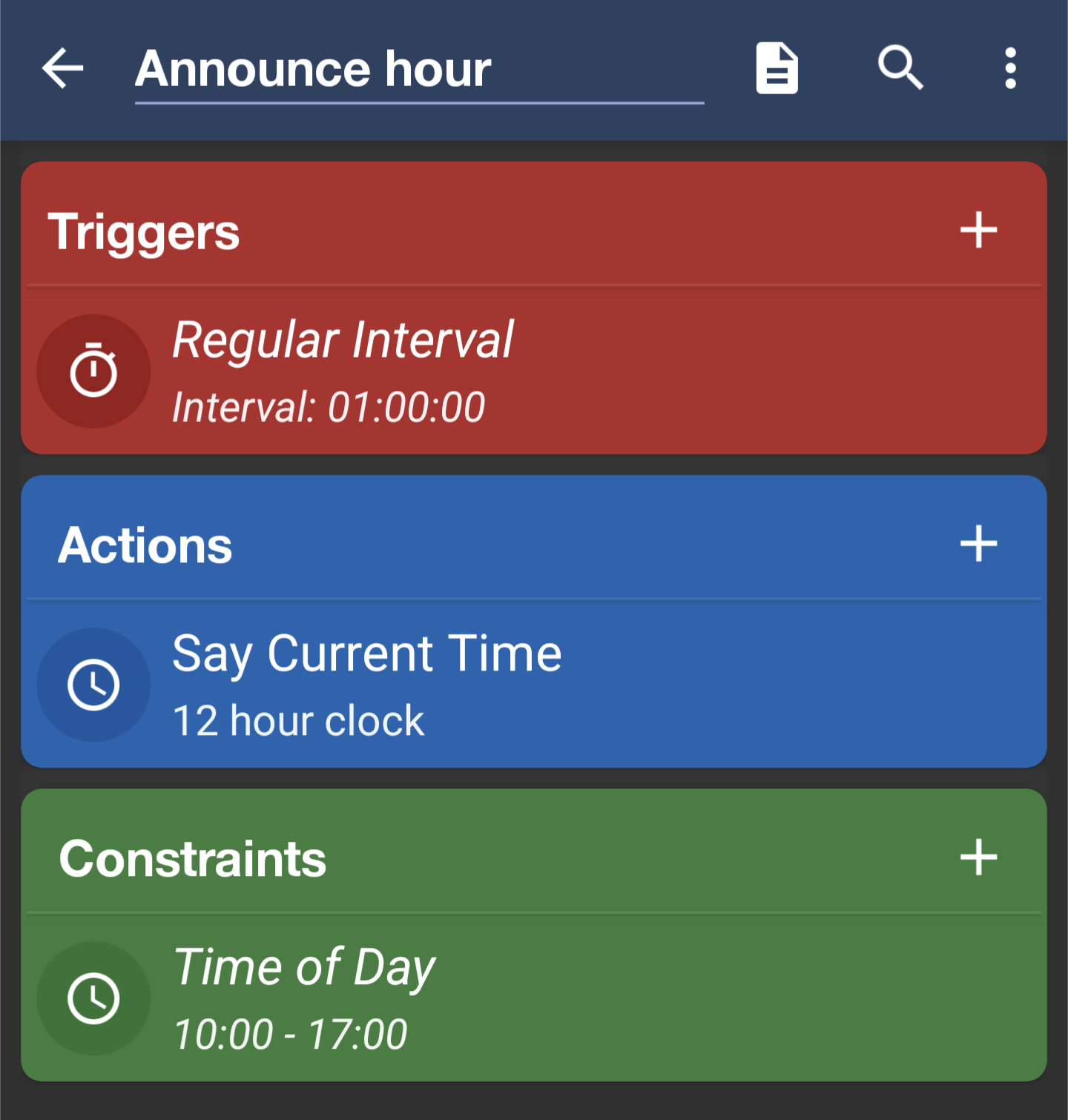

As another eng, let me suggest two things:
- Macrodroid can be configured to announce the hour every hour:

I find that helps me a ton.
2. Consider looking at getting a “Time Timer”. They are a little pricey for what they are but they a) move the alarm from digital – which is a mental space for me – to physical, and that seems to matter for my noticing it; and b) seems to be the only commonly available timer that ticks in a way that matches an analog clock, which allows you to align it with the current clock and see the hour burn down in front of you.
If you find something that helps you avoid “well… What’s 15 minutes more? This would feel good to be done…”, let me know. I’m now very aware of how much time I’m spending on shits and giggles.


Sleep issues can cause ADHD-like symptoms. But ADHD also often causes sleep issues, too. Have a read of this article.
For what it’s worth, I have diagnosed and medicated inattentive ADHD. I also have a small farm. I have never once been bored with it; in fact, if anything, I feel like I struggle so hard to make sure that everything gets done to my level of satisfaction. I get our chickens fed each day, my partner cares for the bees, and the dog gets two chunks of time outside to play fetch a day. But the garden is only ever half-weeded. If I feel anything, it’s panic over how much time it takes me to do things and a constant feeling of drowning splitting my time between the farm, my kids, my day job, community, and social responsibility.
I also have learned that I CANNOT go sit on the couch after I get my eldest child to sleep. If I do, the multifaceted tentacles of YouTube will grab me and I will wind up trying to operate on 4 hours of sleep too.
All this to say – ADHD experiences vary wildly, but they often rhyme. A lot of the folks in here are saying ‘yep, your symptoms sure do rhyme.’ Take that as you will :)